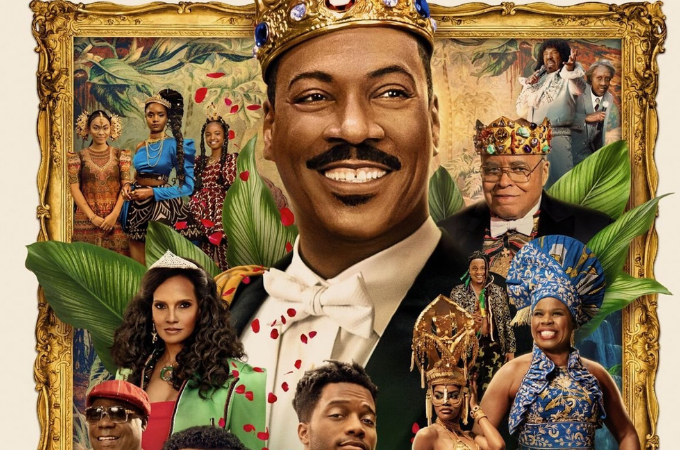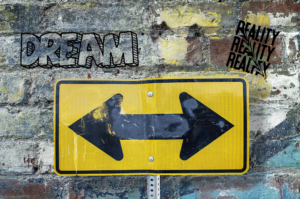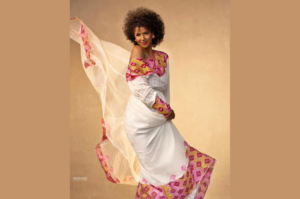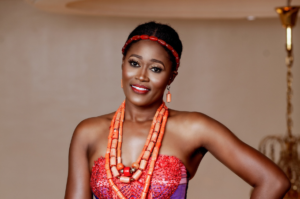
While Coming 2 America laboriously rehashes the stereotypes of its 1988 prequel, it significantly undoes the gender politics of Marvel’s Black Panther. This becomes immediately obvious the moment you are able to go past all the stereotypical references to child soldiers, Ebola, melodramatic military dictators and their love for war and blood, and the funny accents that have become an irritating pastime in Hollywood’s depictions of Africa.
For all its progressive black feminist (or womanist) ideas, some of Wakanda’s most qualified—Nakia, Okoye, Shuri and Ramonda—may never become the nation’s leader. Despite their epistemic power (Shuri) and military intelligence (the Dora Milaje), these women merely serve a patriarchal system that centers on a kingdom that seems to be perpetually ruled only by men. As Minna Salami reminds us, the fact that most of Wakanda’s empowered women appear to be subservient to its powerful men is something that undermines the feminist understandings of the film.
Of course, we need to be tentative about the possibility of Shuri’s emergence as Wakanda’s leader, although I would think she and the other women in the kingdom appear to be subservient to male leaders they support. When Okoye, for instance, says she is “loyal to the throne, no matter who sits upon it,” you really wonder if the “who” might also have a non-male reference. It is possible it does, but not much is ongoing in Wakanda to suggest it is. Black Panther 2 without T’Challa will probably not have the same vibes, but it is probably the occasion for a Queen Shuri who exists for her own rule, and not to support any man’s. As I argue in a journal article, there is a sense in which womanism’s focus on community appears to make up for the patriarchy of Wakanda in a way that a feminist vision may not, but even this is debatable.
Since Black Panther‘s indebtedness to African history and cultural values is one of its strongest points, it could easily have looked to the continent’s matriarchal history or its recent female presidents for inspiration, but that was not appealing. Matriarchy may not be the inverse of patriarchy, but the political rule of mothers and powerful women is well established in African matrilineal cultures. The Akans offer the commonest example, but there are several others.
Coming 2 America, it first appears, reiterates a similar logic: “the throne must pass to a male heir,” Akeem’s father, King Jaffe, tells him before he joins the league of the Joffer ancestors looking on Zamunda from above. Akeem’s “shortcomings in masculinity” are a danger to the throne and his three girls are, in the nation’s gendered thinking, not sufficiently positioned to help the situation. Underneath the film’s comedy, this tension animates the plot. A woman is not allowed to rule Zamunda. “It is the law,” Akeem tells his family at table when his youngest daughter presses him: I always “thought Meeka was going to be Queen.” The law is the literal rule of the father, which is definitive of every patriarchal society. This is not to suggest Coming 2 America does not have its feminist perks. After all, Zamunda’s heir, born in America’s Queens, is taught by women. It reminds you of Shuri teaching T’Challa to use his ceremonial outfit.
His loyalty to tradition aside, Prince Akeem even admits: “my daughters teach me the language of the modern world.” Also, Lavelle, the prince from Queens, is schooled into self-discovery and love by Mirembe, the official royal barber who takes on the role of alleviating Lavelle’s sense of inadequacy. “Be the Prince from Queens,” she tells Lavelle. By the end of the film, Akeem rightly decides that his eldest daughter, Meeka, who has prepared for the throne and qualifies for it can become Queen. Her father realizes that the language of the modern world must include a progressive rediscovery of his own earlier rebellion against unchanging social norms and oppressive tradition. If Shuri cannot become Queen because of Wakanda’s patriarchal politics, Meeka’s emergence as the future leader of Zamunda is telling, as it realizes what the audience might only wish for in a much-anticipated Black Panther 2: the possibility of a female ruler of Wakanda.









COMMENTS -
Reader Interactions